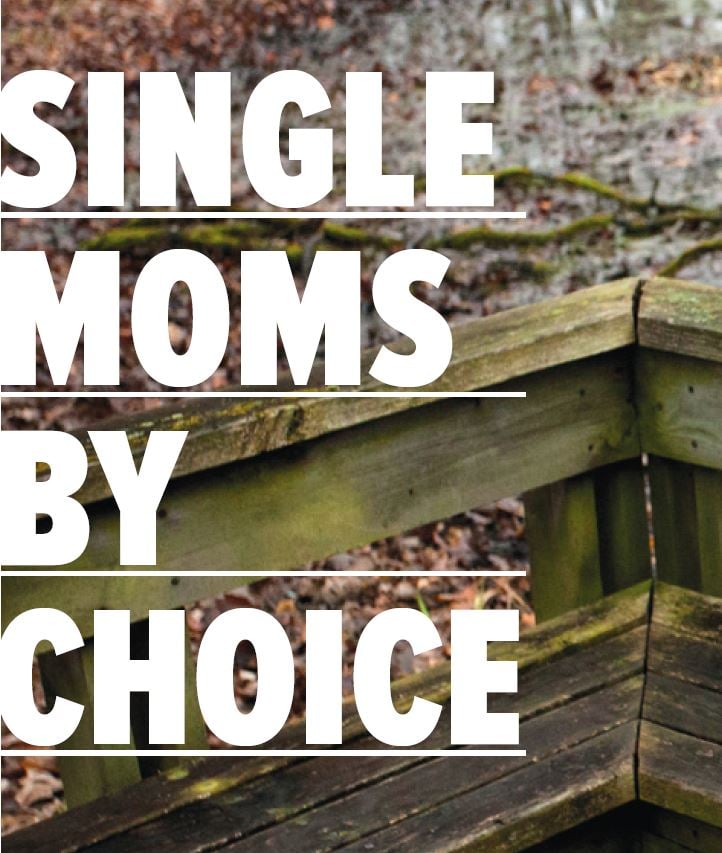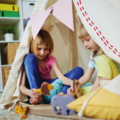When my husband, Jonathan, and I were in the process of adopting our first daughter from China, I learned much about the importance of maintaining links to an internationally adopted child’s birth culture and fostering pride in her racial and cultural identity. I was convinced, but Jonathan wasn’t. “We’re not Chinese. Why pretend to be?” I remember him saying.
And then one evening we watched a television show featuring three young women who were adopted from Korea and raised in Minnesota. The older two had grown up in white communities, raised by their families (as was the custom at the time) to be “almost white.” They were confused about their identity; neither felt she fit in. The show followed them on their first return visit to Korea, where they looked (in vain) for their birth parents. They didn’t speak Hangul or know much about Korean customs. They still felt out of place.
The program contrasted their experiences with those of a younger woman whose parents brought Korean culture into their home and traveled to Korea with her. She was studying Korean dance. Not only did the younger woman seem happier and at home in both cultures, she was also closer to her adoptive family. At the end of the show, Jonathan turned to me and said, “I get it now.”
International adoption leader
In the years 1971-2001, American parents adopted more than 265,000 children from other countries. Many of these kids, most under the age of 5, came home to Minnesota, where more people, per capita, adopt internationally than in any other state.
When the first children were adopted internationally, social workers told their new (usually white) parents that their kids were “almost white.” The children were encouraged to fit in. There was little talk about racism (most internationally adopted children are of color) or pride in one’s birth culture – they were Americans now! They learned to make lefse but not egg rolls. Never mind that they were ill-prepared for taunts, for classmates’ parents who wouldn’t let their children date interracially, for just looking in the mirror and seeing a face that was different from all those around them.
Times have changed. Today’s adoptive parents are prepared for the issues of racism and identity by social workers like Luann Zimmer, LICSW, who heads the International Adoption Program at Lutheran Social Service of Minnesota. When a social worker meets with a family or single person for their homestudy (a look at the family and its strengths), she talks about these issues and provides them with a list of local cultural organizations and other resources.
“Our families are required to attend a half-day training about cross-cultural issues,” Zimmer said. Along with understanding the issues their children will face, “They’ll need to be able to handle questions from [extended] family, friends, even strangers.” Zimmer tells heartbreaking stories: of the child who grew up in a town so white, she told Zimmer, “I never saw another person of color till I went to Duluth”; of kids with black skin or Asian features who pretend they are Caucasian. Zimmer says, “Parents need to learn how to reach out, to get outside their comfort zone. Are there events they can attend?”
Language is “hugely important,” says Zimmer, citing a personal example: “When I met my daughter (Zimmer’s youngest child was adopted from Colombia), I said ‘Como esta, baby?’ and our eyes locked.”
Dal, dance, and dragon boats
Today, many adopted kids spend weeknights learning Korean dances, Saturdays learning to speak Mandarin and make dal (an Indian dish), and summer vacations learning about their Vietnamese roots at Culture Camp. Families celebrate ethnic holidays like the Chinese Dragon Boat Festival. And teaching your children about their cultural identity isn’t just a big-city phenomenon: Haitian art purchased on adoption trips adorns the walls of homes in Willmar, and families in Alexandria get together to celebrate the Lunar New Year with their children adopted from Asian countries.
Zimmer stresses that it’s important that the whole family celebrate a child’s birth culture: “Don’t build a ‘shrine’ to your child’s birth culture in her room – place the art throughout your home,” she says. “That will help show your child that you value it, too.”
Janie Jackson of West St. Paul, adopted from China as an infant, attended a Mandarin Chinese immersion daycare center in Roseville when it was brand new. Her mom, Cindy Jackson, became friendly with the Chinese people who ran the daycare. When the daycare decided to expand, it was Jackson who stepped in and helped them find space in a local church. Although Janie, now a second-grader, is no longer at the daycare, the friendship has endured. “We just saw them on Friday night,” Jackson says. “They’re Auntie and Uncle to Janie.”
Some of Jackson’s other forays into Chinese culture haven’t been as successful. For a time they attended a Chinese Christian church, but Jackson says it just wasn’t a good fit. She and other parents started an after-school Chinese club, but the kids were tired after a long day at school and not amenable to more academics. “Some things work out, some don’t,” Jackson says philosophically.
Everyday life
Caroline Ticarro-Parker is the mother of Natalie and Cassidie, twin 7-year-olds who were adopted from Vietnam as infants. Ticarro-Parker’s own family emigrated to the U.S. when she was 5. “My parents wanted us to be Vietnamese at home, American when we were out, but us kids went the American way,” she says. “I learned more about Vietnam from culture camp [with her adopted daughters] than in my childhood.”
It’s different for Natalie and Cassidie. “Every day is culture camp for them,” says Ticarro-Parker. Catalyst Foundation, the organization she and her husband Scott founded to help the children of Vietnam also holds culture camps in Minnesota and on the East Coast. Although the culture camps are only three to four days long, they bring year-round value for the families who attend. “The kids hang on; they hate to leave,” says Ticarro-Parker, who adds, “At least one child each year asks if I am their birth mother.” While there is programming about racism and white privilege, there’s also time for fun: The young Vietnamese-American counselors hosted a karaoke night and, in a hilarious 20 minutes, the campers made 800 egg rolls. (Ticarro-Parker’s parents led the cooking class.)
Everyone we spoke with stressed that it’s also important that the child – and family – embrace other cultures as well, including those of their adoptive families. Cindy Jackson explains, “This summer we visited Vasa, near Red Wing, and saw old photos of children who lived at the Swedish children’s orphanage where a couple of my great uncles were raised.” Though Janie seemed bored at first, she later initiated a discussion about her own orphanage and adoption. “My feeling is that the family needs to honor its complete heritage,” says Jackson, who also draws a distinction between authentic Chinese culture and “the middle-class white American takes on Chinese festivals.” She adds, “Chinese culture is different than the Chinese-American adoption subculture.”
“I’m not Chinese. I wasn’t raised and embedded with Chinese values,” says Jackson. “I can spice up my life with Chinese culture, a lot of Chinese art and Chinese history. But I think it’s very important to nurture Chinese connections, adult friendships. We need people who can show the kids what it is like to be an adult who looks like them.”
Cultural resources
Local agencies and social workers have good contacts within local adoption communities. An excellent resource is Adoptive Families magazine, available at Barnes & Noble and online at http://www.adoptivefamilies.com
China
Families with Children from China – Midwest. 952-885-6872. http://www.fccmidwest.org or [email protected]
Russia
Families for Russian and Ukrainian Adoption. Jennifer and Seth Mayotte 763-585-0884. http://www.fruamn.org
Korea
Korean Focus. Locally, Children’s Home Society and Family Services does some programming for Korean adoptees. 651-646-7771 or 800-952-9302. http://www.koreanfocus.org
Latin America
Parents of Latin American Children. Brenda Machacek 763-494-9290. http://www.lasemana.org














